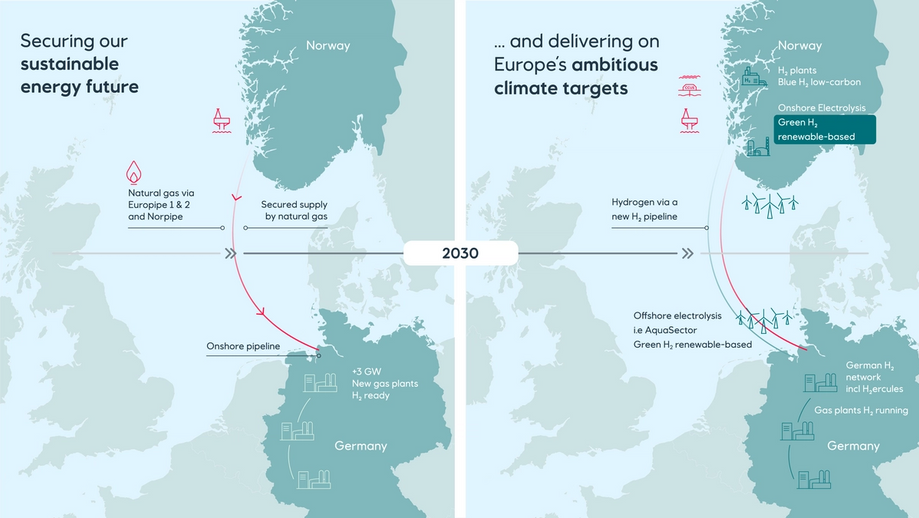Norway and Germany are working together to create the energy system of the future.
Together with German energy company RWE, we have presented a plan to replace German coal-fired power plants with gas-fired, hydrogen-ready power plants. The plan also describes how Norwegian low-carbon hydrogen and renewable hydrogen can be exported to Germany by pipeline.
Faced with the major societal and environmental challenges ahead of us, we believe it is essential to develop a decarbonised energy system for Europe that creates jobs, stimulates industry and ensures value creation – as well as providing energy for people and society.
Low carbon hydrogen and renewable hydrogen will reduce carbon emissions significantly.
Norway is the largest natural gas supplier to Europe, and Norwegian gas has the lowest carbon footprint compared with other gas supply alternatives.
Our collaboration aims to:
- Strengthen energy security for Germany – Europe’s leading industrial country – in the short and long term
- Offer a viable route to a necessary energy transition for hard-to-abate industries (steel, concrete, etc.)
- Develop Norway – Europe’s leading supplier of natural gas – into a key supplier of hydrogen to Germany and Europe
- Provide for the joint development of offshore wind farms to produce renewable hydrogen as a feedstock for power customers and other industrial customers in the future.
